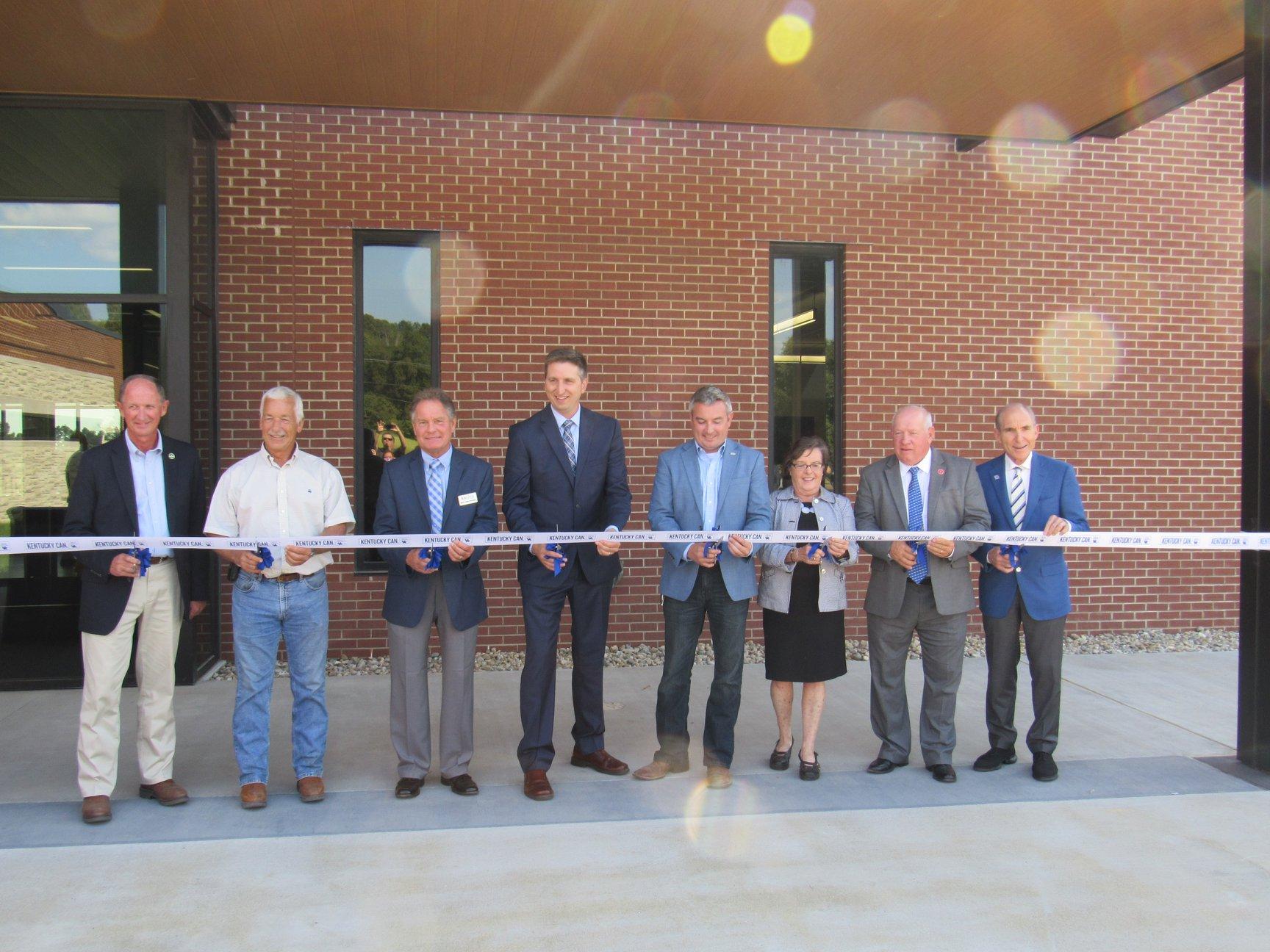Overview
Overview
The University of Kentucky College of Agriculture, through the programs of the Agricultural Experiment Station and Cooperative Extension Service, is dedicated to serving people throughout the Commonwealth of Kentucky. Established in 1925 the West Kentucky Substation at Princeton has functioned as a center of agricultural activities in western Kentucky. Great advancements have been made in Kentucky's leading industry, Agriculture, with considerable progress being made in improving utilization and conservation of resources, increasing yields of crops and livestock, better management of capital and labor, expanding markets, and finding solutions for problems facing rural people and communities. Increased returns to Kentucky farmers total millions of dollars annually just from the use of new production technologies resulting from research findings and educational programs of the College of Agriculture.
The UK College of Agriculture's West Kentucky Substation is the headquarters for more than 50 faculty and staff members representing eight different departments in the College.
We use this modern facility to:
- conduct research,
- provide diagnostic testing services, and
- develop educational programs on topics of concern to Kentucky farmers, agribusinesses, and families.
The Experiment Station Farm consists of almost 1,300 acres, including soils of both sandstone and limestone origin, characteristic of soil types throughout the state. Researchers conduct approximately 100 different research/demonstration projects each year at the Experiment Station Farm or on farms in western Kentucky.
Information derived from these projects or research conducted elsewhere is delivered to farmers and the general public through county offices of the Cooperative Extension Service. Extension Specialists located at the Center have expertise in a broad spectrum of food and agriculture topics.
Service laboratories located at the Center provide information needed to make management decisions in the following areas:
- Soil testing enables farmers to develop nutrient management plans for growing crops.
- The plant disease diagnostic laboratory helps identify plant health problems and provides recommendations for disease prevention and control. Once insect and plant pests are identified, specialists can give advice on integrated pest management strategies to control them.
The Rottgering-Kuegel Agricultural Research and Extension Building is available to large and small groups for classes and meetings in agriculture, home economics and 4-H. It is also used for a wide variety of meetings by government agencies, industry, and the general public. Each year there are approximately 450 different meetings held in this building, attended by about 14,000 people. Many of these visitors come from other states and foreign countries.
Crops such as corn, wheat, soybeans, tobacco, fruits, vegetables and ornamentals are studied for ways to increase yields and income, improve handling and storage, protect the environment and address other problems farmers may have.
Research and education programs are also conducted in beef production. A beef herd consisting of 400 animals is involved in many different experiments and demonstrations.
Agricultural engineering specialists conduct research and educational programs related to both crop and livestock production.
An aquaculture program is conducted in cooperation with Kentucky State University.
Field days and demonstrations that attract more than 3,000 people annually showcases the work of the Research and Education Center. Visitors observe research, educational displays and demonstrations representing work conducted at the Center and throughout the state.
Individuals and small groups are welcome to visit throughout the year to observe specific projects and talk with specialists.

Additional History
The Agricultural Experiment Station was established in 1885 as the research arm of the College of Agriculture of the University of Kentucky, Kentucky's Land Grant Institution. In fulfillment of statewide responsibilities to serve the research needs of agriculture and rural citizens, experimental work is conducted under a variety of climatic and soil conditions in all parts of the state.
Grain and Forage Center Groundbreaking, Construction and Ribbon Cutting
On Sept. 19, 2019, a Ribbon Cutting was held for the Grain and Forage Center of Excellence at the University of Kentucky Research and Education Center at Princeton. Shown at the event are (from left) Representative Richard Heath; Senator Paul Hornback and farmer from Shelby County; Ray Allan Mackey, a farmer from Hardin County and President of the Kentucky Corn Promotion Council; Dr. Chad Lee, Director of the Grain and Forage Center of Excellence; Kentucky Agriculture Commissioner Ryan Quarles; Nancy Cox, Dean, UK College of Agriculture, Food and Environment; Warren Beeler, Executive Director of the Governor’s Office of Agriculture Policy; and UK President Eli Capilouto.

